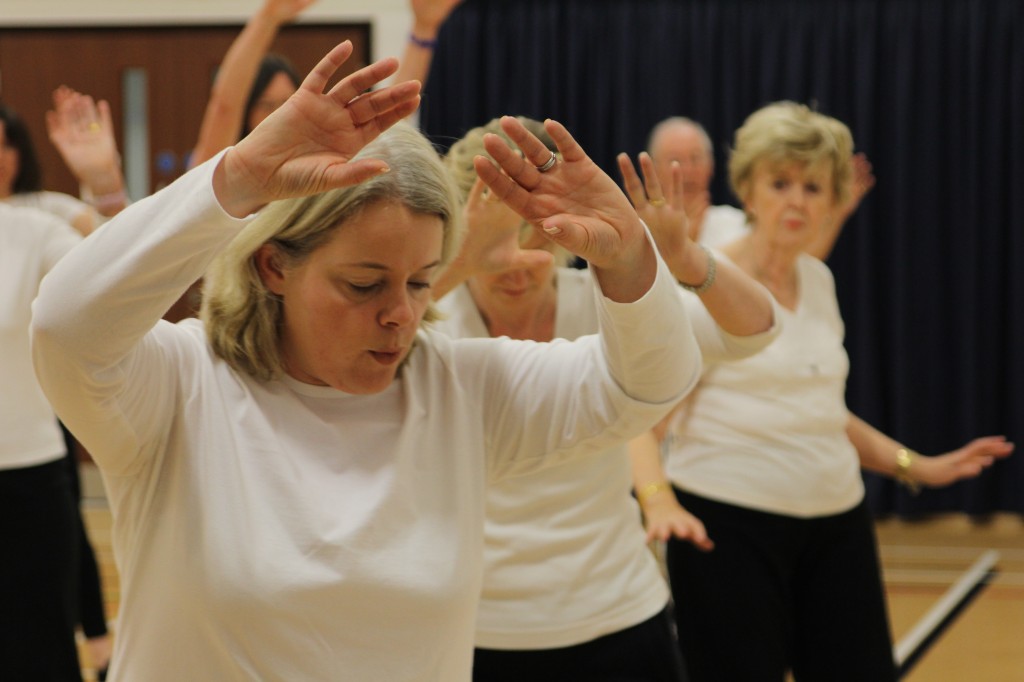Here’s how the conversation goes –
“So, how was your summer break? Did you get away anywhere nice?”
“Yes, thanks – we spent two glorious weeks doing X,Y & Z and enjoying the break from A, B & C… seems like a LIFETIME ago now, though. Everything has overwhelmed me now we’re back at the daily grind. It’s like we’ve never been away!”
Recognise this? Well, read on and I’ll arm you with the first in my series of top tips for stress busting your life the T’ai Chi way.
#1 Just “let it go!”
We all hold onto stresses which we can quite easily do without. I’ve in fact had this discussion with a number of good friends over the summer. It’s easy I guess to tell people not to worry about something – but what I’m encouraging, is to really weigh up whether the worrying and associated stress are in fact helpful. Isn’t it better that you find an appropriate time and method for working through your problems (mindfully, constructively etc.) – and then to allow yourself to let go of those worries. By doing this, we are separating the source of the problem from the stresses and anxieties which they create. This stress-busting tip won’t make the problem go away; but it will equip you with the resilience, strength, energy, clarity of thinking and fresh perspectives which will allow you to reduce and manage the stress. It’s also helpful to give your subconscious mind a chance to work things through “offline” for a bit.
In T’ai Chi everything is in a state of constant flux; nothing stays the same. Your energy needs to flow. We embrace this. It’s healthy to move on and not to dwell so much on things which may not be possible to change.
In my T’ai Chi classes, I encourage students to bring their mind into what they are doing in the present moment; to acknowledge any thoughts which come to them in class – and then to dismiss those for another time. The very act of practising T’ai Chi for that hour or so means that you give your mind a “holiday” from its constant re-running of what I call “same-loop thinking.”
That’s how T’ai Chi is so relaxing, and refreshing.
In previous posts I have explained that T’ai Chi doesn’t meet force with force. Instead, we build energy/ confidence from within and simply deflect any aggression without engaging with it. We can tell ourselves that an aggression doesn’t need to be our reality. We don’t need to accept it. We can smile and let that aggression go ![]()
Exercise
Choose a quiet moment (it need only be one minute, and can even be at your desk). Say to yourself that you “give up” some of your thoughts for a while. Label those; be specific. Allow yourself to operate completely free from the thoughts which have been particularly bothering you. You can set the timeframe – but make it a longer timeframe than you’re used to in terms of that same-loop thinking coming back to you for its next repetition. Having labelled the thoughts you are about to give up, also make a committment to plan in a short time to run through your worries in a mindful, engaged fashion (e.g. plan a call with a friend, or designate a section of your dog walk in which you can “thrash it out.”)
I’m aware that this is much easier said than done. It’s only talking to friends on this, that I have come to realise quite how much I bring T’ai Chi principles into my own life every day – and how beneficial these are in managing my stresses. It has taken years of practice – but the baby steps have been very worthwhile.





